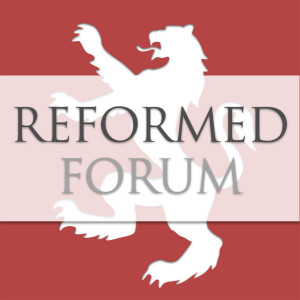
Van Til Group #13 — Roman Catholic and Evangelical Views of Sin and Human Consciousness
 2024-05-24
2024-05-24
In this installment of Van Til Group, we turn to pp. 73–77 of Cornelius Van Til's classic book, The Defense of the Faith. In this section, Van Til critiques both Roman Catholicism and certain strands of Evangelicalism for their approach to human autonomy and the nature of sin.
Van Til argues that Roman Catholicism, as represented by Thomas Aquinas, assigns too much autonomy to human consciousness, even before the Fall, which undermines the Scriptural notion of authority and total depravity. He contends that Aquinas views fallen man as not entirely different from Adam in paradise, thus diminishing the need for grace.
Similarly, Van Til criticizes C.S. Lewis, representing a segment of Evangelical thought, for conflating metaphysical and ethical issues and for not adequately emphasizing human disobedience to God as the root of ethical problems. Both perspectives, according to Van Til, fail to uphold the biblical doctrine that only through faith and complete reliance on the triune God of Scripture can true ethical behavior be achieved.
More Episodes
Create your
podcast in
minutes
- Full-featured podcast site
- Unlimited storage and bandwidth
- Comprehensive podcast stats
- Distribute to Apple Podcasts, Spotify, and more
- Make money with your podcast
It is Free
- Privacy Policy
- Cookie Policy
- Terms of Use
- Consent Preferences
- Copyright © 2015-2024 Podbean.com




